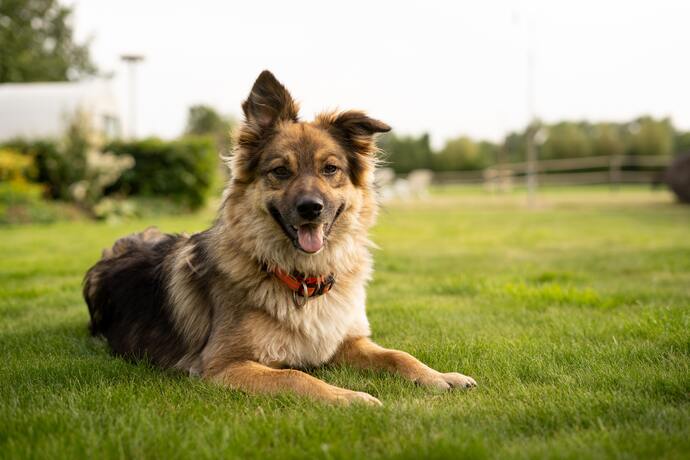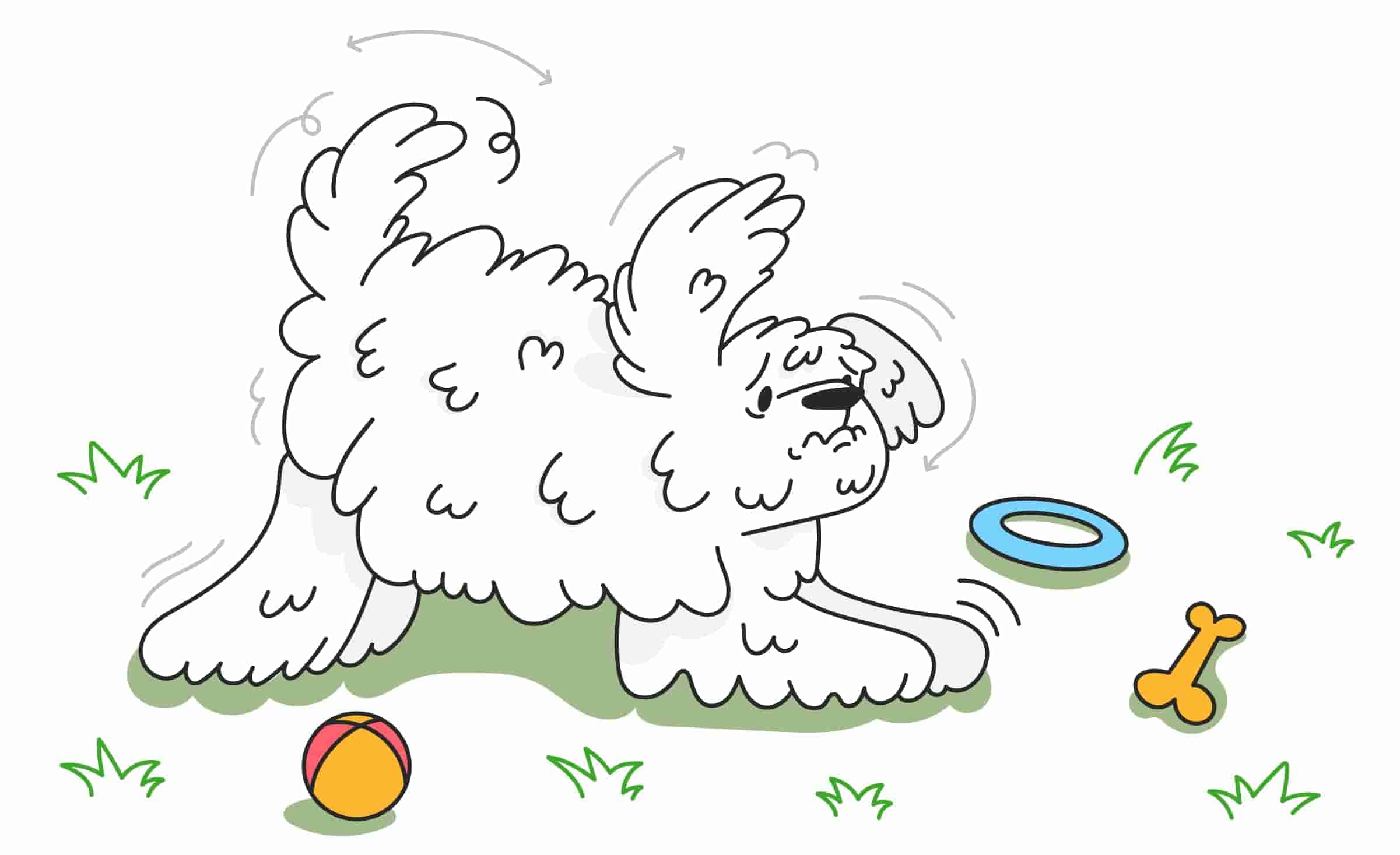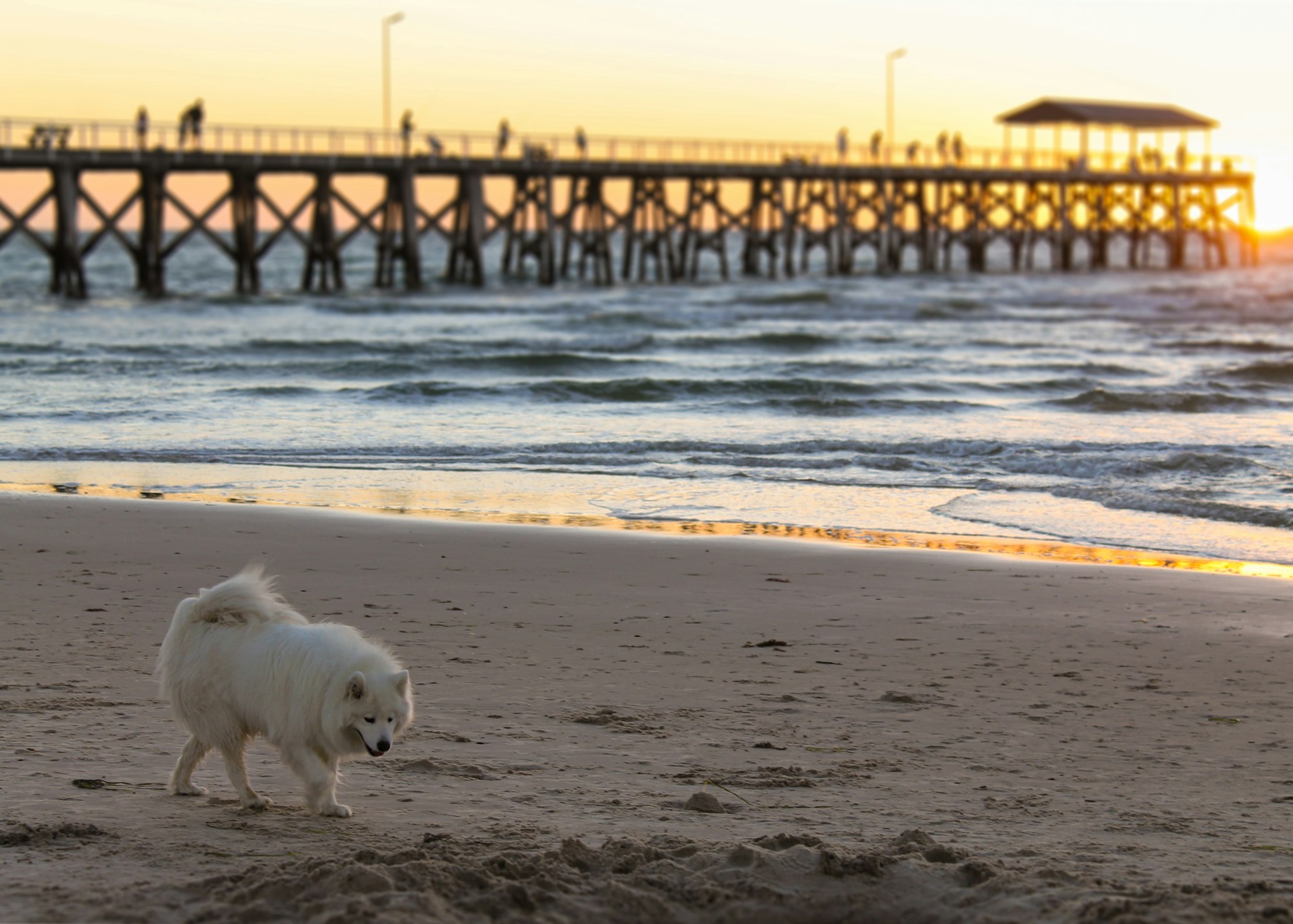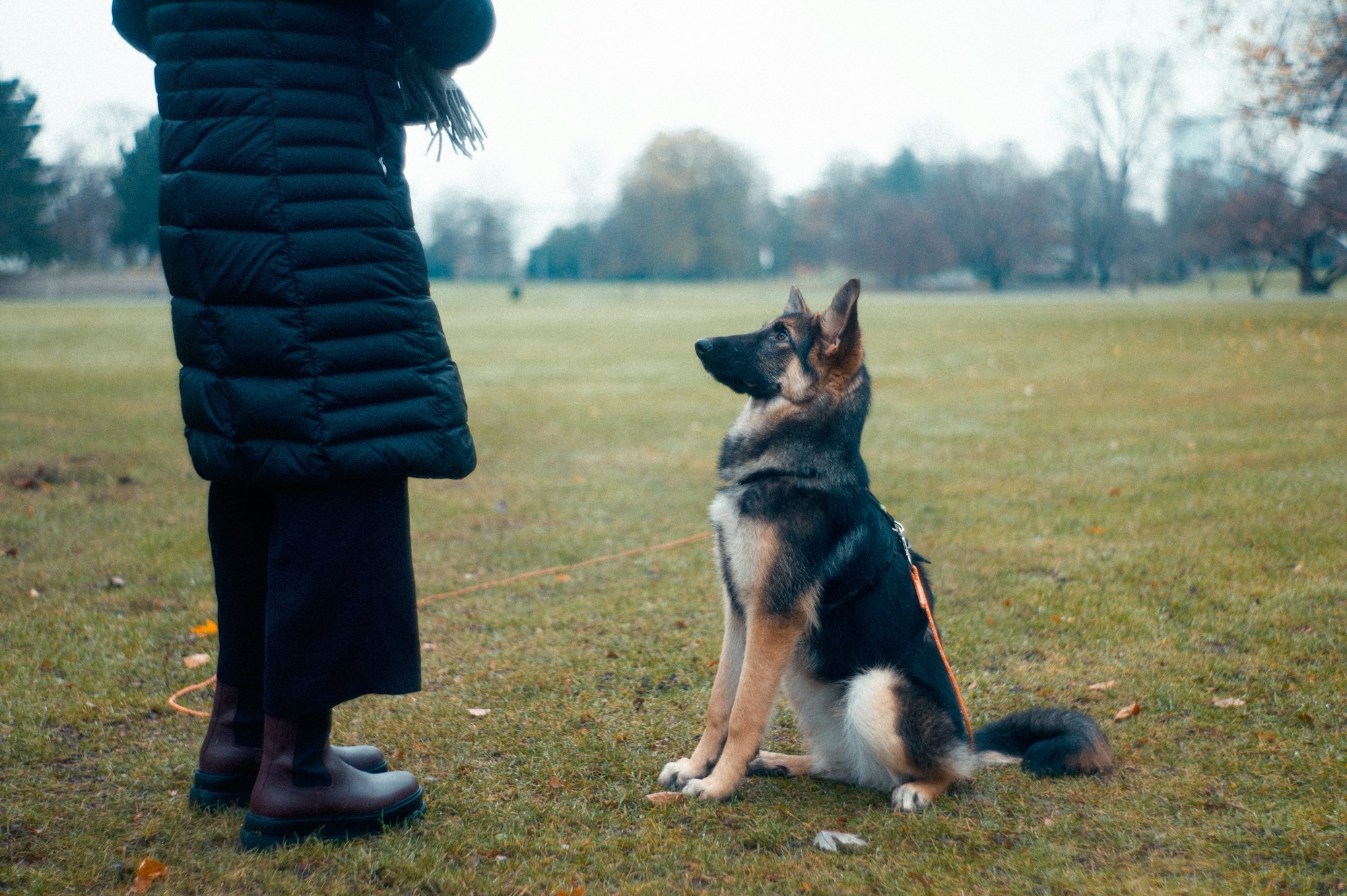When you see your pooch shaking, panic might be your first reaction. The question of "why is my dog shaking" is quite a complex one as shaking in dogs sometimes requires immediate veterinarian help, while at other times, it is something completely benign.
- Harmless reasons why dogs shiver | Being cold | Anxiety | Fear and stress | Excitement | Old age | Attention-seeking behavior
- Serious concerns behind dog trembling | Food poisoning | Generalized tremor syndrome | Distemper | Hypoglycemia
- Takeaway
Our four-legged friends can shiver, shake, or tremble for various reasons. While some of the causes are entirely harmless, others are intertwined with health issues, behavioral problems, and overall well-being. So, when is the time to ring the alarm and contact a veterinarian for help? Let's find out.
Stop Googling - Ask a Real Vet
Harmless reasons why dogs shiver
There is no single answer to the question of why dogs tremble, shake, or shiver. In reality, such behaviors can happen because of numerous reasons, and let's start with the widespread and generally harmless ones. While some are caused by excitement or coldness, others are more complex, ranging from stress to fear. Let's find out about the causes behind dog shivering that don't require the vet's help and how you can cope with them.
Being cold
You're probably familiar with how cold weather can make you shake, and it's the same with dogs. Dog's body temperature is higher compared to humans (100 to 102.5°F against 98.6°F), and they have a much higher metabolic rate.
When dogs get cold, they need to produce more heat to stay warm. It causes canines to shiver, with their bodies producing heat through muscle contractions to raise their body temperature.
If it's freezing cold outside, your dog will be the first to let you know. Watch for signs of panting and shaking, especially if the dog's ears are low or flat to the head. When your dog is trembling inside, it's also a sign that they need help. Try increasing the room temperature or bring extra blankets to cover your freezing pooch.
What's the takeaway? Shivering in dogs is natural and quite widespread, but if your pup is still shaking after warming up, keep on reading to learn about other reasons.
Anxiety
Anxiety is yet another factor that might explain dog shivers. Anxiety in pups can manifest in different forms, starting from excessive barking to pacing or destroying furniture. Shivering is another common sign of anxiety, which can happen if your dog is adjusting to a new environment, meeting new people, or dealing with other stressful situations.
If your dog gets nervous whenever you're not around, they might be suffering from separation anxiety. You can manage it by getting a pet sitter, leaving the radio or TV turned on, or communicating with your dog remotely via a pet camera.
Fear and Stress
Same as with anxiety, dogs may shake when they are scared or stressed. It can happen when pups are left alone in the dark, frightened by other dogs or humans, or disoriented by thunderstorms. They might also shake as a result of loud noise or sudden movement.
The best thing you can do is to help your dog feel secure and safe. If your pup is shivering around other dogs, you can try offering them their favorite treats until another dog passes to change your pup's negative emotional response. If your dog is afraid of fireworks, plan a few outings with them on the days that fireworks are going off so they can get used to it and reward them generously for any progress in overcoming their fear.
Excitement
Sometimes, it's just plain old excitement. When dogs are super-excited about something, they may shake as their body tries to overcome the emotions of the moment. You don't need to do much to make your dog excited, just come home after a long workday, and you'll see your dog barking, jumping, and even trembling out of sheer joy.
The truth is that even an excited pup that is shivering is no better than a scared or stressed dog. You should encourage your Fido to feel more relaxed, even during the happiest moments of the day. Train your four-legged friend to calm down and reward them for quiet behavior.
Old age
Dog back legs shaking might be caused by your pup's old age. While some dogs develop usual tremors when getting older, others experience shivers alongside joint or muscle pain. These tremors usually don't prevent dogs from moving and running as they used to, but you never know whether they are in pain.
Please remember that caring for an aging dog is a serious responsibility, so don't neglect to make regular vet visits.
Attention-seeking behavior

Dogs are smart and if they need your attention, they will go to any lengths. It can be barking, growling or begging for food to get a little bit of your precious time. If your dog wants to use all their acting skills, they will add shiver as a part of their role.
What can you do to alleviate shaking as an attention-seeking behavior? This method is simple and effective: ignore them and do your best not to reinforce the behavior. This method of dealing with the problem works for most puppies, but there are exceptions. In some cases, owners should increase play-time and physical activities for the dog so that they expend more energy during the day. This way, it is more likely that the dog will be calm and not require excessive attention. If the problem persists, the best option is to consult a certified dog trainer.
We have just listed all the harmless reasons why your dog may be shaking, but if these reasons do not apply to your dog or you have any doubts, it is best to consult a veterinarian. You can consult our online veterinarians with Petcube Online Vet. This is a round-the-clock access to licensed veterinarians who are ready to provide you with professional advice in a timely manner.
Serious concerns behind dog trembling
Alright, but what if your dog keeps shaking after checking up on all the mentioned causes? Tremors in dogs sometimes are worrying signs of illnesses, immune system disorders, and even food poisoning. When dog tremors don't stop for quite some time, you should know how to spot danger and react to it. Check out some serious reasons behind dog shaking and how to mitigate them.
Food poisoning
If your dog develops a case of shivers, chances are they ate something they shouldn't have. While people can safely consume hundreds of food products, it's not the same with canines. There are dozens of everyday human foods that are actually toxic to pets. Some of them, like chocolate and macadamia nuts sound pretty innocent but, in reality, can cost your dog's life.
The most common food poisoning symptoms in dogs include vomiting, lethargy, reduced appetite, abdominal pain, and trembling. The best way to ease your dog's suffering during food poisoning is to offer them water, but not food. If your pup is still vomiting, trembling, or experiencing lethargy, don't wait anymore and immediately bring him to the vet.
Generalized tremor syndrome
Shaking in dogs, which is not associated with excitement, anxiety, or stress, can be a sign of generalized tremor syndrome (GTS). It was first discovered in small breeds, such as Maltese and Poodle, and it got a name of a "white dog shaker syndrome." Since then, it was proved that this condition can occur in any dog, regardless of breed, color, or size.
Dogs with white shaker dog syndrome have tremors in the form of shaking movements that are similar to shivering. In severe cases, pups might experience difficulties walking. What's more, GTS causes rhythmic shaking that isn't always visible to the human eye.
Such dog tremors are caused by the inflammation of both the brain and spinal cords. According to the research done in the University of Sydney, GTS is idiopathic, meaning that the underlying cause of inflammation has not yet been identified. If you spot any of the unfamiliar shaking movements in the dog's head and body, don't hesitate to call your vet ASAP.
The treatment may require the use of steroids that suppress the immune system, in addition to decreasing inflammation. That's why you should contact a veterinarian to start treatment and speed up your pup's recovery.
Distemper
Unfortunately for all dog owners, our four-legged friends can also get ill. Distemper is a vaccine-preventable contagious disease that damages dogs' gastrointestinal, respiratory, and nervous systems.
As specified by AVMA, the symptoms of distemper include lethargy, reduced appetite, and muscle seizures in severe cases. Even though this disease can be treated, it's better to prevent it by following a vaccination schedule. Don't leave any gaps in the immunization schedule and ring the alarm bell if your pet starts developing symptoms. So, if your dog is shaking and all the other causes don't apply, contact your veterinarian ASAP.
Hypoglycemia

Hypoglycemia in dogs refers to the condition of having low blood sugar, affecting canines' neurological functions. Glucose is a driver for your dog's energy levels and overall activity. Hypoglycemia may be caused by poor diet, excessive exercise, insulin overdose, or liver inflammation.
Canines affected by this condition show the symptoms of lethargy, loss of coordination, muscle spasms, trembling, and, if left untreated, unconsciousness and coma followed by death. So if your pup is shivering and you have reasons to suspect a low sugar level, give them some sugar water and contact a vet. The sooner you find the reason, and start tracking your dog's blood sugar levels to take necessary actions, the better the outcome will be.
When it comes to serious cases of dog trembling like the ones mentioned above, emergency veterinary care should be sought. Seeing our dog trembling due to a serious underlying cause is scary, and having the support we need in these situations means a lot. Petcube’s Pet Emergency Fund is one of those services that provide you and your pet with the care and support that you need in times of emergencies.
Being covered by the Pet Emergency Fund provides you with $3000 annually for pet emergencies (which protects up to 6 pets). There’s no waiting for paybacks as the bill is paid right after treatment. Unlike many pet insurances that don’t cover pets with certain conditions or if they’re already seniors, the pet Emergency fund covers pets regardless of age, breed, and medical history.
Apart from this, a subscription also comes with an online vet service, allowing you to consult with certified veterinarians 24/7. This allows you to ask any questions you may have regarding your pet’s health and wellness at any time. With the Pet Emergency Fund’s features and terms that are pet and pet owner friendly, you get the peace of mind that you need during a difficult time. Our blog readers get an exclusive 27% off on subscriptions if you follow this link.
Takeaway
As you now know, the question "why do dogs shake" can have various answers. Some of the benign reasons for dog shaking or trembling include being cold, excited, stressed, anxious, or scared. What's more, your pup might be just seeking your attention.
Quite a different situation with dog shivering happens when reviewing health-related concerns. They include food poisoning, old age, GTS, and other diseases, which in many cases can be prevented by vaccination and regular vet visits. Make sure to monitor your pups' behavior when they start to shiver, and you can't explain it by cold or excitement.
Was this article helpful?
Help us make our articles even better










